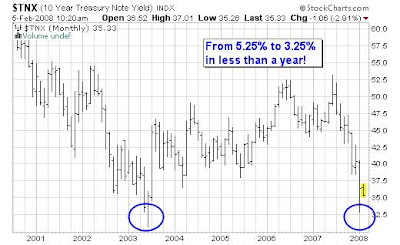
Penn National Gaming (PENN) offers a unique investment opportunity at current prices. They have a private equity buy-out on the table for $67.00 per share at something called a "fully financed" transaction led by Fortress Investment Group (FIG) and Deutsche Bank AG (DB). The terms of the deal are such that Penn shareholders will receive $67.00 in cash for each share of Company common stock they own. If the merger is not consummated by June 15, 2008, the per share merger consideration will be increased by $0.0149 per day. There is also a provision that pays Penn $200mm if the deal falls through.
Ok, the background on Penn Natl Gaming: PENN is the 4th largest casino operator in the U.S. They have annual revenues of approximately $2.5billion. They have a focus on slot machine entertainment. The Company operates nineteen facilities in fifteen jurisdictions, including Colorado, Florida, Illinois, Indiana, Iowa, Louisiana, Maine, Mississippi, Missouri, New Jersey, New Mexico, Ohio, Pennsylvania, West Virginia, and Ontario. In aggregate, Penn National’s operated facilities feature over 23,000 slot machines, approximately 400 table games, over 1,731 hotel rooms and approximately 805,000 square feet of gaming floor space. In the past week, they opened a brand new facility called Hollywood Casino in Harrisburg, Pennsylvania to rave reviews.
The ques: Why is the stock trading for $49 when there is a deal that is set to be consummated in June at $67? One word...debt, well maybe two words, credit crisis. Fortress, Deutsche Bank, and another private equity firm in on this leveraged buyout, Centerbridge Partners, must have the capability to obtain financing, and the ability to off-load some of the debt to third party investors. This is the nature of the LBO - the tool is to finance a takeover by raising large amounts of debt at competitive prices. If pricing is unfavorable, then it becomes harder to justify the Return on Investment (ROI). The market is placing a legitimate amount of skepticism on the deal getting done.
However, here are some things to consider:
This past weekend, Peter Carlino, Chairman and CEO of PENN, was interviewed on site at the opening of the Hollywood Casino in Harrisburg. He was asked point blank to comment on the progression of the transaction. Answer: "To my knowledge, very well....This is a fully financed transaction, like Harrahs. We had locked-in financing from the outset. Financing with virtually no escape from the banks."
Note, Carlino mentions the Harrahs deal, which was recently completed in January. That was a $17billion purchase (significantly larger than the Penn offer) by Apollo Group and Texas Pacific Group (TPG) and banks in on the deal were Bank of America and Deutsche Bank.
Note, Deutsche Bank announced earnings a week ago, and lo and behold, they did not report any write-downs related to sub-prime or other mortgages. Last October, they did report $2.2 billion in write-downs, but the latest report mentions strong risk management exercised during the overall credit crisis. CEO Josef Ackermann was quoted, "Unlike many of our competitors, we are in very good shape and at times like these, when financial markets are more risk-averse, we are set to gain from a flight to quality." The banks ability to dodge the subprime crisis also allowed it to raise their dividend 13%, which is unusual relative to some other banking institutions doing the exact opposite.
Here's a re-cap: Fortress (and others) offer $67.00 per share for Penn (a premium of 37% over today's price). The bond market swoons on sub prime and other related problems. In the meantime, the board agrees to sell, and PENN shareholders approve the deal. Fortress agrees to pay $200mm if they back out. Harrahs Entertainment, the largest casino operator in the US, gets taken out in a private deal for $17billion in January 2008. One of the banks assisting the Harrahs package is Deutsche Bank. They had trouble selling some of the junk bonds, but the deal got done. Fast forward to June 2008, will the debt market get better? Will the "locked-in fully financed" deal get done? Is this a speculative risk worth taking? Would I be comfortable holding PENN if the deal does not take place? You be the judge.
Good Luck.







